#signed by an autistic pwBPD with a penchant for over-analyizing tone and body language
Text
I've seen people remark on how awkward the 1967 scene is and that is so frustrating because, for me, it is one of the most emotionally resonant flashbacks in the entire series. It is so multifaceted and ripe with implication and that assertion is baffling. As though just because this conversation appears to be hard for them, it must mean that there has to be some sense of weirdness or awkwardness between them?
This scene feeds heavily into my theory that 1941 ended in some sort of aborted romantic moment between the two, most likely initiated by Crowley. Aziraphale can barely stand to look at Crowley because the very first moment he looks him in the face, he can't stop himself from giving him this hooded eyes, barely contained look of longing.
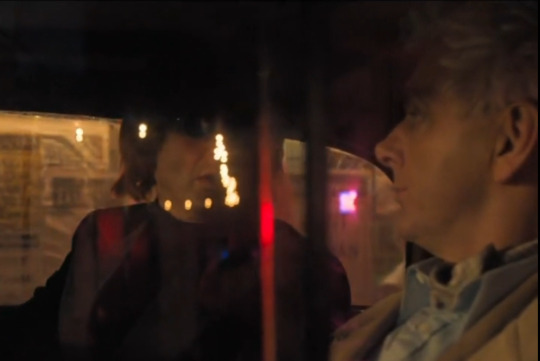
The next thing we see is Aziraphale immediately launching into a statement about his fear for Crowley's existence that is as brutally sincere as it is heartrending. His eyes are wide, his voice is heavy with emotion, and it's clear that he is terrified beyond belief to lose Crowley. Even as he acquiesces and gives him the holy water, you can see that he wants to take it back and deny him it all over again.
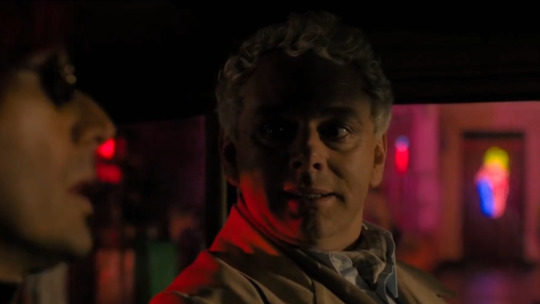
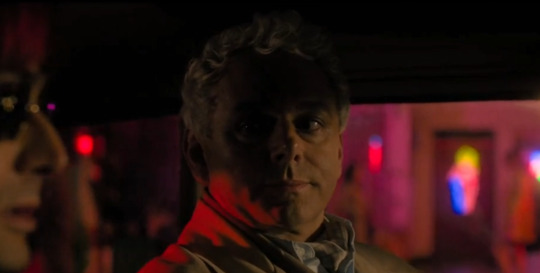
Then, of course, Crowley asks if he can give him a lift, which is definitely something that they both know is a totally different question than what lies on the surface, given that they're mere feet from the bookshop and at first Crowley frowns so deeply that it's almost cartoonish but a moment after Aziraphale turns him down you get this glimpse of very real sadness:
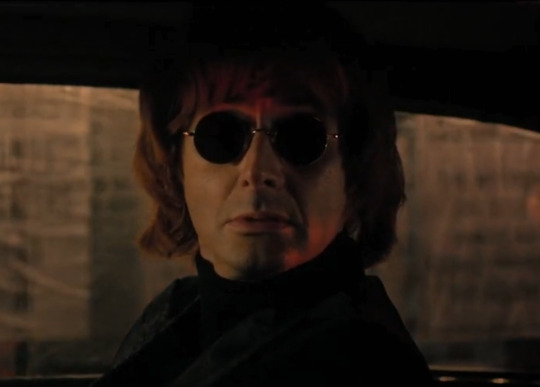
Aziraphale sees it for what it is and in an attempt to comfort him, without being able to do what currently seems impossible to him, shares a fanciful but resigned fantasy about spending time together unbothered and unrestrained, all to the tune of these tight little, loving smiles:
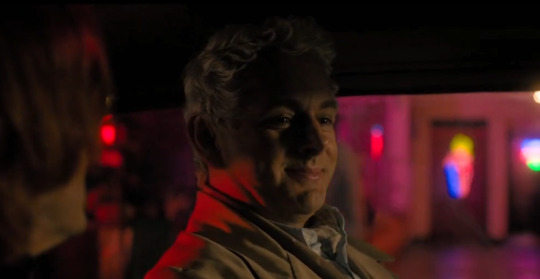
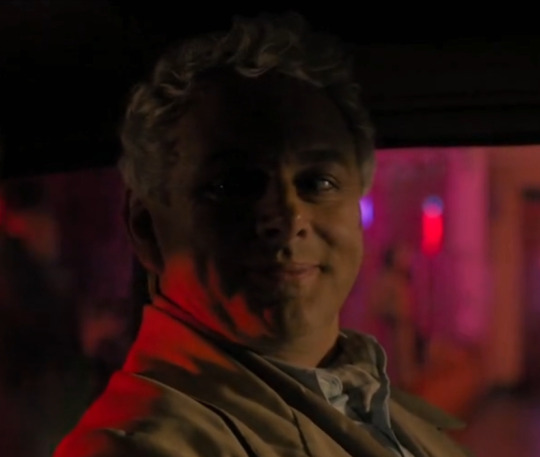
When he asks again, you can just see Crowley's desperation for Aziraphale not to go. It's hard to say how long they'd been apart, but it's safe to say that for them, that previous interaction likely is very fresh in their minds.
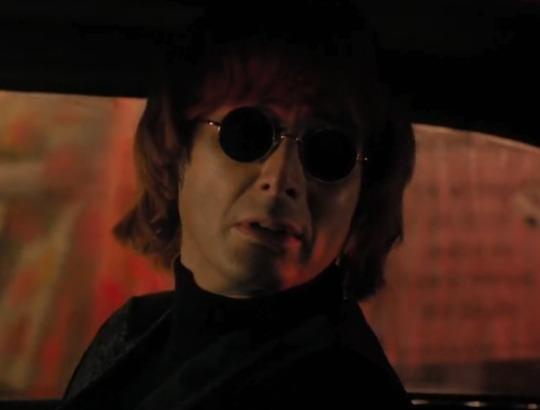
Aziraphale has always been more fearful than Crowley when it comes to their feelings for each other. You could even potentially look at the holy water as a metaphor for their relationship. In his expressions of concern about The Arrangement, Aziraphale has always been remarking on how Crowley could be destroyed, similarly to his words here. So when he's telling him, "You go too fast for me, Crowley," what he's really saying is, "I'm terribly afraid and I'm not ready to take that step if it means that I could lose you." And it's plain to see by the wistful look on his face that it pains him greatly to say it:
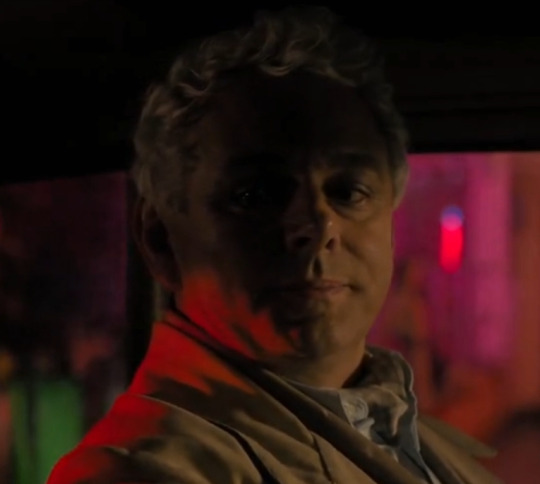
The scene so quickly cuts to Crowley looking intensely at the holy water after Aziraphale has left the car (as if trying to convince you that that was the real point of the scene) that it's easy to miss this devastated expression on Crowley's face:
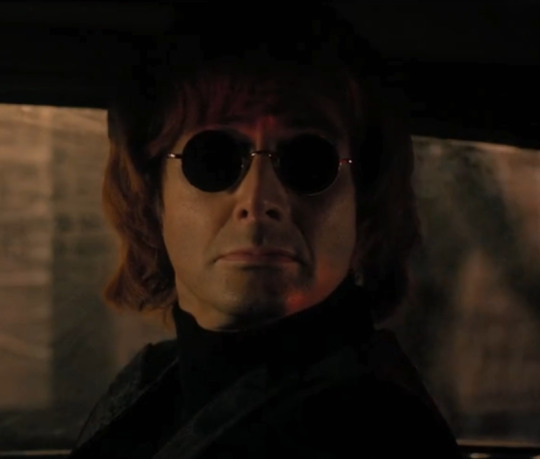
There's no look of perceived rejection on his face. Just a somber look of resignation. There are so many barriers in front of them, and I think that Crowley was willing to risk it but understood that Aziraphale wasn't ready to.
This is the most honest and laid bare we ever see these two be when it comes to their emotions. There's so much being said without being said and even their actual words (i.e. Crowley remembering exactly the amount of time when the 'fraternizing' conversation happened) are so full of emotion that it might even be a bit hard for some people to watch.
It's not awkward. It's just that the scene is just so incredibly earnest and heavy with coded language that it's easy to be swept up by the fact that the two aren't engaged in their typical banter and bickering. What we truly have here is an incredibly difficult and loving conversation between two people who are stuck in a seemingly impossible situation.
#good omens#crowley#aziraphale#ineffable husbands#aziracrow#aziraphale x crowley#michael sheen#david tennant#good omens meta#abel talks meta#good omens through the ages#good omens 1967#signed by an autistic pwBPD with a penchant for over-analyizing tone and body language#anthony j crowley#you go too fast for me crowley
1K notes
·
View notes